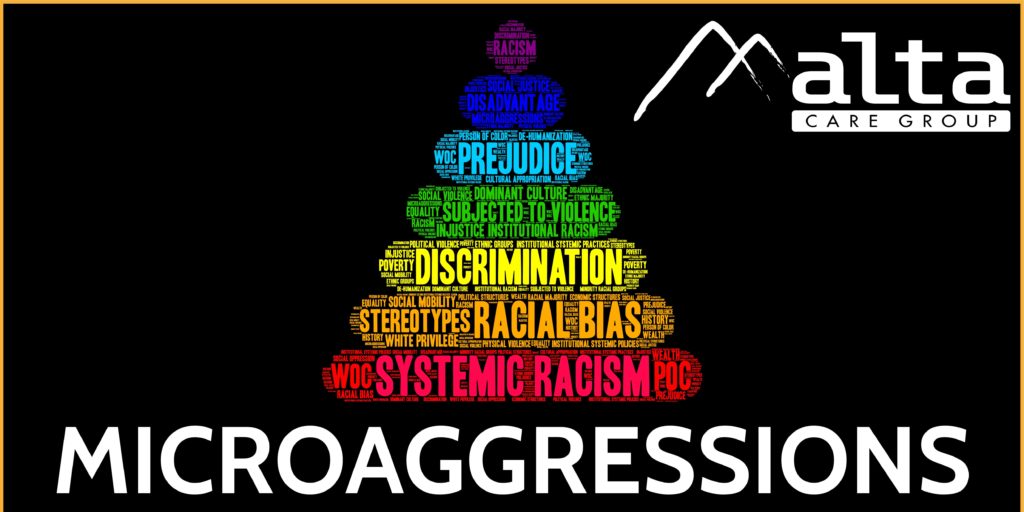Racial Microagressions and Why They Are Hurtful
At Alta Care Group, we care about racism and the impact it has on the children of the Valley. We are working to examine systemic racism and racial bias through the lens of those most affected by it so that we can begin to bring about change.
This blog post is meant to highlight some of the racial microaggressions that we have seen affect our community. We hope that while reading this, you will reflect on your own preconceived beliefs, with a goal to better understand people that are different from you.
It is easy to call out obvious racism like race-based slurs or threats. But what is often harder to identify are the more subtle forms of racial stereotyping, like microaggressions.
What exactly are racial microaggressions?
They are brief, everyday exchanges that communicate hostile, derogatory, or negative prejudicial beliefs to a different people group. Microaggressions can be intentional or unintentional. Sometimes they are even well-meaning, but they may communicate harmful racial messages or underlying assumptions of another person.
Microaggression Example #1:
‘You’re so articulate’ or ‘You don’t sound black’
Why this is hurtful:
When a white person says this to a black person, they are implying that they didn’t expect a black person to speak well or with intelligence. The black person did not fit the white person’s stereotype. This assumption is extremely hurtful and untrue.
Microaggression Example #2:
Shifting to the edge of the sidewalk or clutching your purse more tightly when walking by a black person.
Why this is hurtful:
When a white person does this, they are implying that the black person is a threat or a danger to their physical well-being. This implicit bias affects behavior and can be extremely hurtful.
Microaggression Example #3:
Calling a black person ‘sister’ or ‘brother’
Why this is hurtful:
Calling a black person sister or brother most likely stems from an underlying assumption about how black people talk. If a white person has not interacted with that black person before, they may be unconsciously overcompensating when trying to make a connection.
Microaggression Example #4:
‘I am not racist; I have a black friend.’
Why this is hurtful:
Knowing black people does not exclude someone from discriminating towards them. This statement downplays and ignores the larger social context in which black people live.
By providing these examples, we hope that they help you identify microaggressions when they are committed by yourself and your children. The first step to fixing our societal problems is recognizing that there is an issue present.


